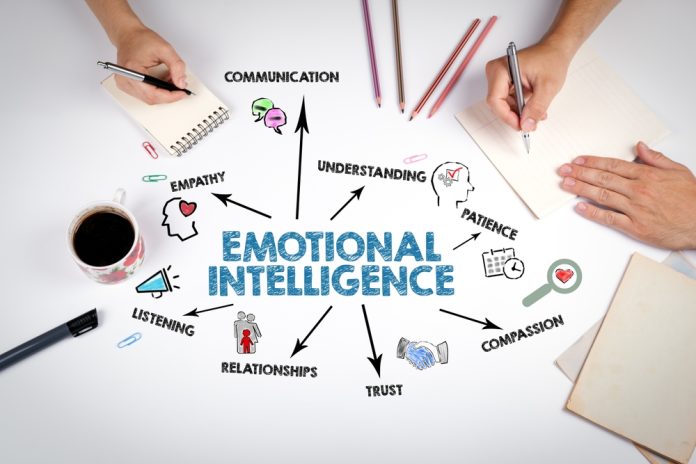
Understanding intelligence in its many forms is becoming a competitive differentiator in the dynamic business world. While traditional intelligence (IQ) remains foundational in most cases, businesses are discovering that emotional intelligence (EQ) is vital right now. This shift gains further significance as artificial intelligence (AI) increasingly takes over routine business tasks, highlighting the importance of distinctly human qualities such as empathy, intuition, and ethical judgment in sustaining competitive advantages.
What Is EQ?
Initially popularized by psychologist Daniel Goleman, emotional intelligence is the ability to recognize and manage emotions. EQ has swiftly risen from a niche psychological concept to a strategic asset in business. Companies now recognize that emotionally intelligent teams outperform their peers in areas such as collaboration, innovation, and customer relations. Leaders adept in EQ build trust more easily, promote transparency, and create environments that not only attract talent but retain and motivate it.
EQ and AI
However, alongside this rise in the need for EQ, artificial intelligence has emerged as an equally influential factor reshaping contemporary business practices. Modern businesses extensively integrate AI models, such as ChatGPT, to streamline tasks that once burdened employees. This includes everything from drafting e-mails and analyzing data to handling customer inquiries. According to a recent detailed exploration on Views4You, global use cases of ChatGPT indicate that while automation substantially boosts productivity, it also shifts human roles toward tasks demanding emotional nuance and ethical discernment.
Yet, despite AI’s impressive capability in handling complex, data-driven tasks, EQ remains uniquely human. This distinct contrast becomes particularly evident in work ethics and organizational culture. AI systems, however advanced, naturally lack moral reasoning, empathy, and intuition. They can execute commands but cannot genuinely comprehend the subtleties of human emotions, values, or relationships. For example, AI-powered customer service bots can resolve issues efficiently, but they fall short when empathy and personal connection matter most, precisely where EQ-trained employees excel. Similarly, in healthcare, AI can diagnose illnesses quickly through pattern recognition, yet it cannot comfort patients or manage sensitive emotional reactions to challenging news, areas where nurses and doctors with high EQ excel. From a leadership perspective, AI-driven tools can identify productivity patterns, yet they cannot inspire teams during crises or effectively mediate conflicts by understanding underlying emotional dynamics, roles uniquely suited to emotionally intelligent leaders.
Best of Both Worlds
Interestingly, businesses that perfectly integrate AI capabilities with strong EQ practices achieve the best of both worlds. According to insights from a Forbes article, such integration allows companies to maintain efficiency without sacrificing human connection. Leaders who combine EQ with technological proficiency don’t merely install AI. They build ecosystems that empower employees emotionally and professionally, fostering a deeper sense of belonging and creativity.
Moreover, organizations that emphasize EQ alongside AI-driven processes tend to experience higher employee satisfaction, loyalty, and emotional engagement. Unlike AI, emotionally intelligent teams naturally build authentic connections and establish a work ethic based on mutual respect, understanding, and meaningful communication. These attributes are not just desirable, they’re indispensable in driving sustained organizational health and success.
Ultimately, the modern workplace isn’t defined by a choice between AI and human emotion but rather by harmonizing the strengths of both. Businesses acknowledging the irreplaceable value of emotional intelligence alongside AI innovation position themselves uniquely to thrive, maintaining the essential human touch necessary for sustainable success in an increasingly digital age.



